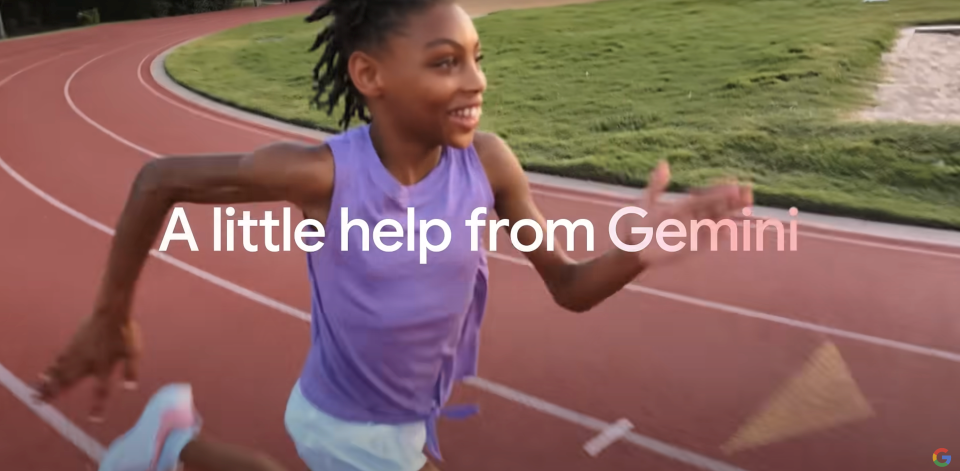Google will no longer air an Olympics ad that showed a child using AI to write a fan letter
The “Dear Sydney” commercial pissed a lot of people off.

Google is phasing out an Olympics ad for its AI-powered chatbot, Gemini, after receiving widespread criticism for showing a father using AI to help his daughter write a fan letter to her favorite athlete. In the 60-second commercial, which is still available on YouTube, a father uses Gemini to write a fan letter to Olympic track star Sydney McLaughlin-Levrone, on behalf of his young daughter.
“She wants to show Sydney some love and I am pretty good with words, but this has to be just right,” the dad says in the commercial. “So Gemini, help my daughter write a letter telling Sydney how inspiring she is.” The ad ends with the words: “A little help from Gemini.”
A Google spokesperson told CNBC that although the ad tested well before it aired, “given the feedback, we have decided to phase the ad out of our Olympics rotation.” The spokesperson added that the ad’s goal was to create an authentic story to celebrate Team USA. “We believe that AI can be a great tool for enhancing human creativity, but can never replace it,” they added.
“The commercial showing somebody having a child use AI to write a fan letter to her hero SUCKS,” wrote Linda Holmes, the host of NPR’s Pop Culture Happy Hour podcast, on Threads. “Obviously there are special circumstances and people who need help, but as a general ‘look how cool, she didn’t even have to write anything herself!’ story, it SUCKS. Who wants an AI-written fan letter??”
Shelley Palmer, a professor of advanced media at Syracuse University’s communications school, strongly criticized the ad in a widely-shared post on her blog. She argued that the commercial’s approach could lead to a “monocultural future where original human thoughts become increasingly rare” and expressed concern for the ads’s implications for parenting and education.
The backlash reflects the broader debates around the role of AI in creative processes and its potential impact on the quality of human expression. As AI technologies continue to advance, companies are facing increasing scrutiny not only over how they portray and promote these tools but also about using the work of creative professionals without permission to train AI models.
(23)
